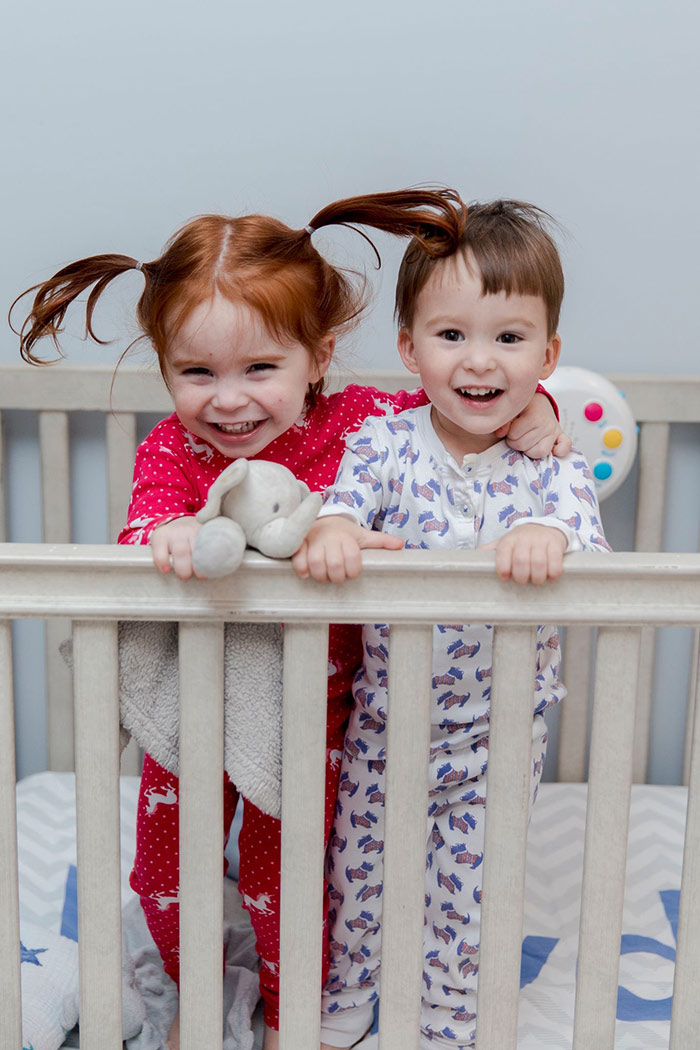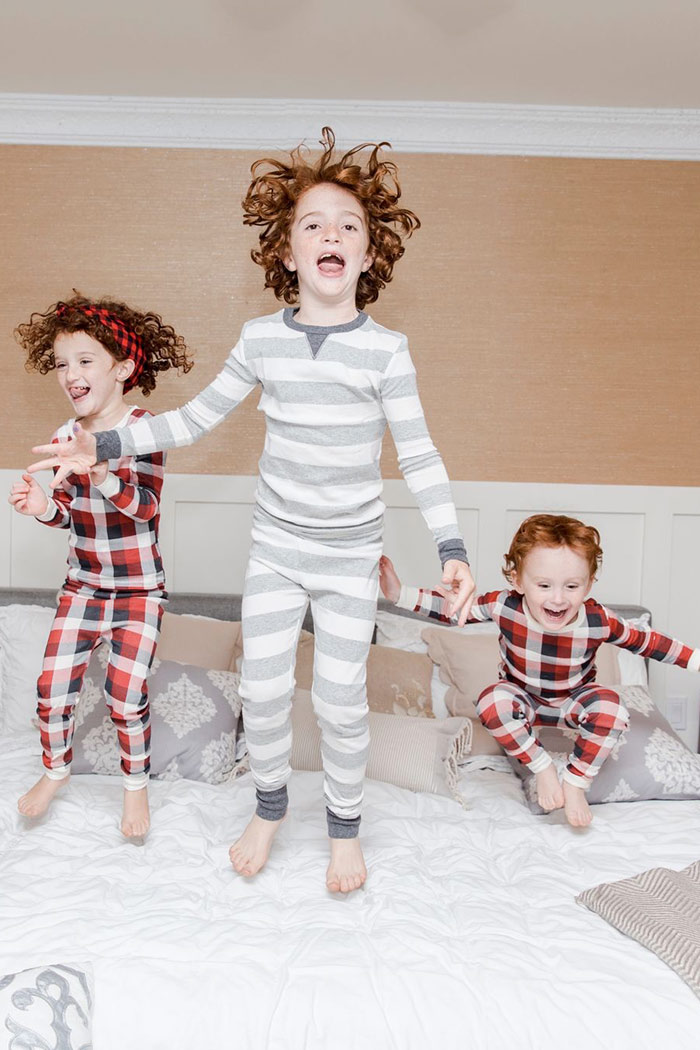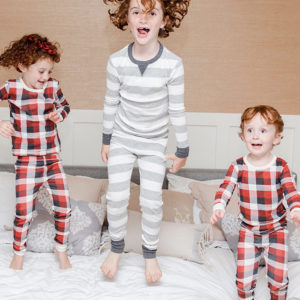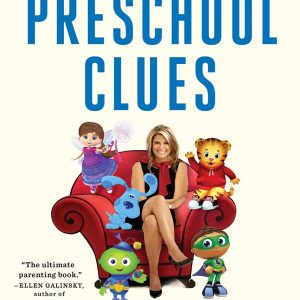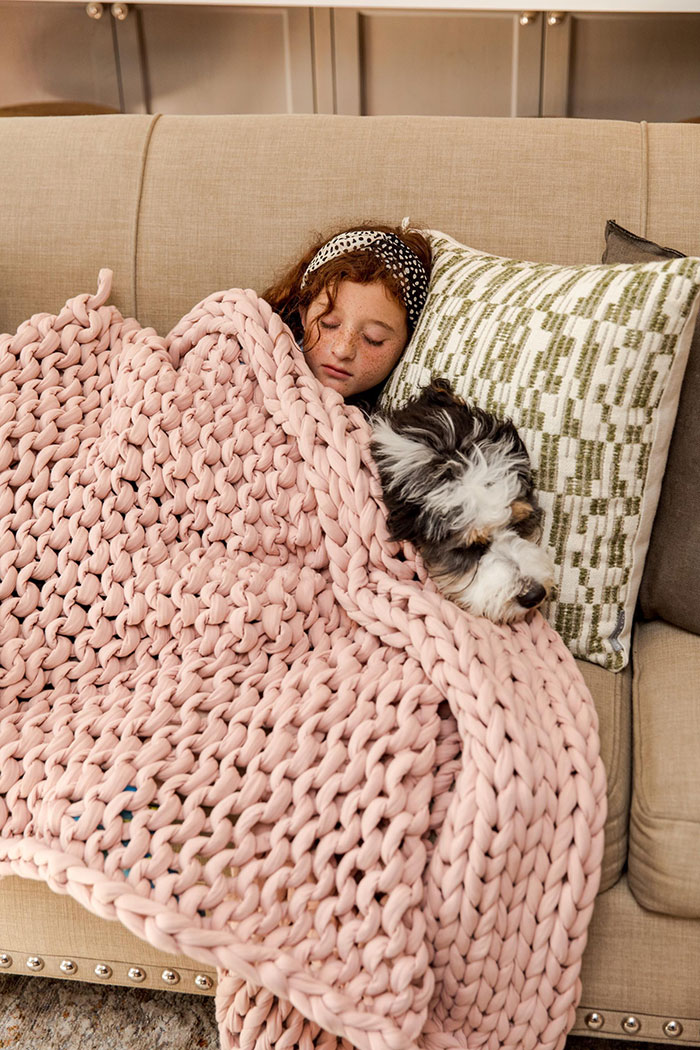
Why Sleep Is So Important For Raising Healthy Kids
Are your kids getting the sleep they need? A lack of sleep is detrimental to our health, focus, and mental wellbeing. Figuring out the best healthy sleep solutions is so important for your kids – and for your own sanity! So today, we want to discuss some reasons why sleep is so key and how a kids’ natural sleep aid or two can really turn things around.
The Importance of Sleep for Kids
Good sleep hygiene and a proper bedtime are imperative for the health and development of your child. Sleep has been the focus of many pediatric studies, all revealing that poor sleep hygiene can lead to dangerous consequences.
When our children are run down and tired, they become more vulnerable to becoming sick, in addition to other complications.
And studies show that 25-50% of children have problems going to sleep.
But why is a lack of sleep such a bad thing?
1. Decreased Immunity
Sleep is extremely important to maintaining good health and strong immunity. During the school year, children are constantly exposed to new germs.
But while we sleep, our bodies recharge and become stronger. Your child’s body literally works to fight off these germs while sleeping!
The American Academy of Sleep Medicine, backed by the American Academy of Pediatrics, recommends a certain number of hours of sleep each night for different age groups.
- Infants 4 months to 12 months should sleep 12 to 16 hours per 24 hours (including naps)
- Ages 1 to 2 years should sleep 11 to 14 hours per 24 hours (including naps)
- Children 3 to 5 years of age should sleep 10 to 13 hours per 24 hours (including naps)
- 6- to 12-year-olds should sleep 9 to 12 hours per 24 hours
- Teenagers 13 to 18 years of age should sleep 8 to 10 hours per 24 hours
2. Decreased Performance in School
A study published in Pediatrics found that children with irregular bedtimes had more behavioral difficulties. According to Dr. Wendy Sue Swanson, not only does poor sleep lead to worse behavior, a child with behavior challenges may have a difficult time sleeping.
In addition to the cycle of behavioral challenges and lack of sleep, insufficient sleep in children can also lead to weight issues, hypertension, diabetes, depression and decreased performance at school.
The bottom line is that consistent sleep routines lead to positive outcomes such as improved attention, better behavior, improved emotional regulation, and overall good health.
3. Decreased Ability to Cope with Stress
Lack of sleep does not only affect a child’s mood but also affects their concentration and their ability to cope with stress. Sleep deprivation can lead to your child being overly emotional, experiencing frequent temper tantrums, and showing difficulty controlling impulses.
Getting a full night of healthy sleep is vital to staving off those afternoon meltdowns {we mean the ones from the kiddos, but stress-free kids go hand in hand with stress-free parents}.
Tips to Help Your Child Fall Asleep Easier
Children thrive on structure and schedules. Never underestimate the importance of cues and a consistent routine.
If your child suffers from sleep difficulties, here are some important tips that may help:
1. Bedtime Routine for Kids
Establishing healthy sleep solutions in a solid bedtime routine is imperative to creating good sleep hygiene. It is important that your child starts to wind down and allow their mind to get ready for sleep. Having the same routine every night prepares your child for bedtime.
Many parents don’t realize that a late bedtime can actually result in difficulty falling asleep and resistance to the bedtime routine. For most children, an appropriate bedtime is between 7:30pm and 8pm.
I recommend starting your transition about a week prior to the first day of school. Each night, adjust your child’s sleep routine by about 15 minutes. Remember to keep the bedtime routine exactly the same as you normally would as the nighttime cues will help your child feel comforted and safe. These bedtime routines also help your child know it’s time for bed, even if sun’s still out!
2. Follow Your Child’s Cues
Did you know that kids under the age of 12, or before puberty, get tired naturally around 8pm?
Around 8pm there is a natural rise in a child’s melatonin level.
Seize the opportunity to transition kids to bed around that time. Make sure to look for cues like yawning, rubbing eyes, and moodiness. Try and set bedtime within 30 minutes of these drowsiness cues for an easier transition to bed.
3. Decrease Screen Time
The American Academy of Pediatrics recommends all screens be turned off 30 minutes to 1-2 hours before bedtime.
TVs are not the only issue. Small screens (like smart phones and tablets) are actually even more disruptive to sleep than TV. The light from these devices can impede natural hormones that help us fall asleep. Interruptions from these devices can also break apart our sleep.
Never sleep with your cell phone, and do not let your children either.
4. Try Kids’ Natural Sleep Aids
If you’ve followed all these guidelines and your child is still having trouble getting to sleep or staying asleep, I have a few other recommendations. A kids’ natural sleep aid typically contains essential oils that are calming in nature to help comfort, calm, and soothe kids to sleep.
- Bedtime Sprays
- Calming Balms
- Calming Essentials Oils
Another option that has gotten a lot of attention in recent years is melatonin, which often comes in the form of gummies for kids but can also be found in other forms.
Melatonin is a hormone produced by our bodies to prepare us to go to seep. Naturally, melatonin increases at dusk resulting in us feeling tired and giving our bodies the signals we need to fall asleep.
Our levels of melatonin decrease as morning approaches, allowing us to wake up fresh and ready for the day.
Melatonin can be used occasionally as a safe kids’ natural sleep aid to help promote good sleep hygiene.
However, I do NOT recommend using melatonin on a continuous basis. If is safe to use sparingly as a supplement to other healthy sleep habits to jumpstart the routine and get a child’s body back on track.
Melatonin is NOT a sleeping pill and should not be taken long-term by a child.
As a pediatrician, I feel strongly that using medication or supplementation on a regular basis should only occur under the guidance or supervision of your child’s doctor. I firmly believe parents should use other methods of sleep training in conjunction with any kids’ natural sleep aid. As a pediatrician, my recommendation is that after a few days, you discontinue the use of melatonin for kids and focus on using another sleep aid, such as a solid bedtime routine, as the sole sleep cue.
Final Thoughts Getting Good Sleep with Kids’ Natural Sleep Aid Options
Sometimes kids have trouble falling asleep even when conditions all seem to be right.
If you notice your child’s sleep struggles happening more regularly, keeping a sleep diary can help you uncover the causes of your child’s sleep problems. A sleep diary will be especially helpful if you plan to talk to your child’s doctor about your concerns.
~Dr. Katie
*Important Reminder: NEVER give your child an over-the-counter (OTC) medicine to make them sleepy. Always read the label before giving your child any OTC medicine. OTC cold and flu medicines may contain diphenhydramine, which can cause drowsiness. It is important to only treat your child with the right OTC medicine for the symptoms they are presenting, not to aid in sleep. Please consult a physician before giving your child an OTC medicine.
I’m proud to take part as a blogging ambassador with the CHPA (Consumer Healthcare Products Association) Educational Foundation and KnowYourOTCs.org. This post is sponsored! While I have received compensation from the CHPA Educational Foundation, all opinions are my own.

